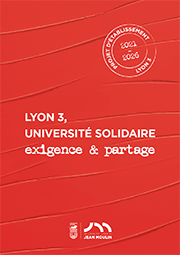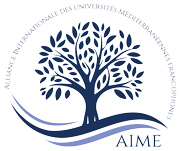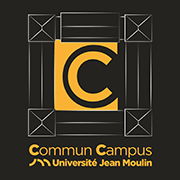AccueilRechercheProgrammes et productions scientifiquesThèsesThèses soutenuesThèses soutenues - 2006-2021Thèses soutenues - 2017
-
Partager cette page
- Recherche,
THOMAS Fanny
Complexité visuelle du packaging et évaluation du produit : le cas de la représentation des ingrédients dans le secteur alimentaire
Publié le 24 janvier 2018 – Mis à jour le 26 juin 2018
Thèse en Sciences de gestion, soutenue le 13 décembre 2017.
L’industrialisation alimentaire est un véritable progrès pour la société et le consommateur qui recherche la facilité d’achat. Cependant, à la suite de plusieurs crises sanitaires, le consommateur souhaite être mieux informé et ma?triser ses choix de produits. C’est pourquoi, les industriels souhaitent à leur tour améliorer la communication sur leur produit par le biais du packaging gr?ce aux attributs visuels. Néanmoins, une surabondance des informations, peut rendre le packaging difficilement intelligible. De ce fait, ce travail doctoral s’intéresse à l’impact du niveau de complexité visuelle du packaging sur l’évaluation du produit alimentaire. Cette problématique donne lieu à trois questions de recherche adoptant successivement une approche holistique, puis deux approches analytiques de la complexité du packaging considérant le nombre d’ingrédients et leur degré de similitude selon le niveau de disponibilité des ressources cognitives. L’influence du niveau de complexité du packaging sur l’évaluation du produit est étudiée au moyen de sept études par une approche aux méthodes variées, avec des mesures auto-déclarées, comportementales et implicites. Cette recherche souligne, l’association d’un packaging simple à un produit alimentaire sain, valorisé suivant le bénéfice nutritionnel et suivant la qualité des ingrédients dans la composition du produit. Par ailleurs, elle souligne l’association d’un packaging complexe à un produit meilleur en go?t qui facilite la formation de l’imagerie mentale gustative, en fonction du degré de similarité des éléments visuels selon une approche analytique de la complexité du design et selon le niveau de ressources cognitives.
Food industrialization is a real advance for society and the consumer who is looking for ease of purchase. However, with several health crises, the consumer wants to be better informed and to control his product choice. In this way, manufacturers want to improve communication on their product through visual attributes of their packaging. Nevertheless, an information overload can make the packaging difficult to understand. As a result, this doctoral research focuses on the impact of the level of visual complexity of the packaging on the evaluation of the food product. This problem leads to three research questions successively adopting a holistic approach, then two analytical approaches to the packaging complexity considering the number of ingredients and their degree of similarity depending on the level of availability of cognitive resources. The influence of the level of complexity on the evaluation of the product is studied by means of seven studies with a mixed methodological approach, with self-declared, behavioral and implicit measures. This research highlights the combination of a simple packaging with a healthy food product, valued according to the nutritional benefit and the quality ingredients in the product composition. In addition, it emphasizes the combination of a complex packaging with a better taste product that facilitates the formation of mental imagery taste depending on the degree of similarity of visual elements in the analytical approach of the design complexity and the cognitive resources level.
Food industrialization is a real advance for society and the consumer who is looking for ease of purchase. However, with several health crises, the consumer wants to be better informed and to control his product choice. In this way, manufacturers want to improve communication on their product through visual attributes of their packaging. Nevertheless, an information overload can make the packaging difficult to understand. As a result, this doctoral research focuses on the impact of the level of visual complexity of the packaging on the evaluation of the food product. This problem leads to three research questions successively adopting a holistic approach, then two analytical approaches to the packaging complexity considering the number of ingredients and their degree of similarity depending on the level of availability of cognitive resources. The influence of the level of complexity on the evaluation of the product is studied by means of seven studies with a mixed methodological approach, with self-declared, behavioral and implicit measures. This research highlights the combination of a simple packaging with a healthy food product, valued according to the nutritional benefit and the quality ingredients in the product composition. In addition, it emphasizes the combination of a complex packaging with a better taste product that facilitates the formation of mental imagery taste depending on the degree of similarity of visual elements in the analytical approach of the design complexity and the cognitive resources level.
Mots-clés :
complexité, simplicité, design du packaging, ingrédients, salubrité, go?t, intention d’achat, charge cognitive
Keywords :
complexity, simplicity, packaging design, ingredients, safe food, taste, purchase intent, cognitive load
Directeur(s).trice(s) de thèse : Mme Sonia CAPELLI
complexité, simplicité, design du packaging, ingrédients, salubrité, go?t, intention d’achat, charge cognitive
Keywords :
complexity, simplicity, packaging design, ingredients, safe food, taste, purchase intent, cognitive load
Directeur(s).trice(s) de thèse : Mme Sonia CAPELLI
Membres du jury :
Mme Carolina WERLE, Rapporteur, Professeure associée habilitée à diriger des recherches, Grenoble Ecole de management,
Mme Nathalie GUICHARD, Rapporteur, Professeure des universités, Université Paris-Sud,
Mme Sonia CAPELLI, Professeure des universités, Université Jean Moulin Lyon 3,
Mme Ga?lle PANTIN-SOHIER, Professeure des universités, Université d'Angers,
M. Franck CELHAY, Professeur associé, Montpellier Business School.
Président.e du jury : Mme Ga?lle PANTIN-SOHIER
Equipe d'accueil : MAGELLAN
Mme Nathalie GUICHARD, Rapporteur, Professeure des universités, Université Paris-Sud,
Mme Sonia CAPELLI, Professeure des universités, Université Jean Moulin Lyon 3,
Mme Ga?lle PANTIN-SOHIER, Professeure des universités, Université d'Angers,
M. Franck CELHAY, Professeur associé, Montpellier Business School.
Président.e du jury : Mme Ga?lle PANTIN-SOHIER
Equipe d'accueil : MAGELLAN
Décision : Admise
Documentation
Mise à jour : 26 juin 2018







